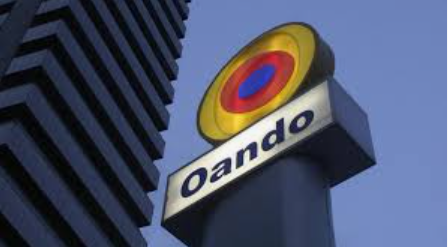Oando Plc’s first-quarter 2025 financial results present a complex picture of financial performance, marked by a significant profit surge driven by non-operational factors, alongside underlying operational challenges. While the company reported a substantial 90.5% increase in profit after tax, reaching N113.06 billion compared to N59.35 billion in Q1 2024, this growth was primarily fueled by a substantial tax credit of N165.62 billion and a reversal of impairment losses totaling N182.29 billion. These one-off gains masked the underlying operational pressures faced by the company during the period, highlighting the importance of analyzing the results beyond the headline profit figure.
The company’s top-line growth remained modest, with revenue increasing by a mere 1.88% to N932.57 billion. While cost of sales decreased, leading to a substantial 172% increase in gross profit, reaching N85.43 billion, this positive development was offset by a significant swing in other operating income, which plummeted from a gain of N248.06 billion in Q1 2024 to a loss of N301.90 billion in Q1 2025. This dramatic shift resulted in an operating loss of N120.34 billion, a stark contrast to the operating profit of N117.20 billion reported in the same period of the previous year. Despite efforts to control administrative expenses, which saw a significant decline, the overall operational performance reveals underlying weaknesses.
Oando’s financial activities provided a silver lining, with finance income surging to N149.60 billion, significantly exceeding the finance cost of N81.82 billion. This resulted in a net finance income of N67.78 billion, a positive reversal from the net finance cost recorded in the previous year. This positive performance in financial activities, combined with the substantial tax credit, ultimately enabled Oando to report a profit before tax despite the operational loss. The resulting profit after tax translated to an improved earnings per share of N9 compared to N5 in Q1 2024. However, the heavy reliance on non-operational gains raises concerns about the sustainability of this profitability.
A closer look at the group’s comprehensive income statement reveals further details about its financial position. Oando benefited from foreign exchange gains of N7.80 billion, a significant improvement from the foreign exchange loss reported in the previous year. This contributed to a surge in total comprehensive income, both for the group and attributable to equity holders. However, the stark difference between the group’s performance and the performance at the company level warrants further scrutiny. While the group achieved a significant profit, the company itself reported a loss of N28.94 billion, albeit a substantial improvement from the significantly larger loss reported in the same period of the prior year.
The company’s balance sheet reveals a mixed picture of its financial health. Total assets increased to N6.83 trillion, reflecting growth in the company’s resource base. However, Oando continues to grapple with a negative equity position, both at the group and company levels. While the negative equity at the group level improved slightly compared to the end of 2024, the negative equity at the company level actually widened. This persistent negative equity raises concerns about the company’s long-term financial stability and its ability to generate sustainable returns for its shareholders.
Oando’s substantial borrowings, totaling N3.04 trillion, further complicate the financial picture. The company carries a significant debt burden, split between non-current and current liabilities. This high level of debt poses a significant financial risk, particularly in a volatile economic environment. Coupled with increasing trade and other payables, the company’s liquidity position warrants careful monitoring. While the statement of changes in equity indicates a narrowing of retained losses for the group, the continued negative equity at both the group and company levels underscores the challenges Oando faces in achieving sustainable profitability and strengthening its financial foundation. The company’s future performance will hinge on its ability to improve operational efficiency, manage its debt burden, and generate consistent profits from its core business activities.


